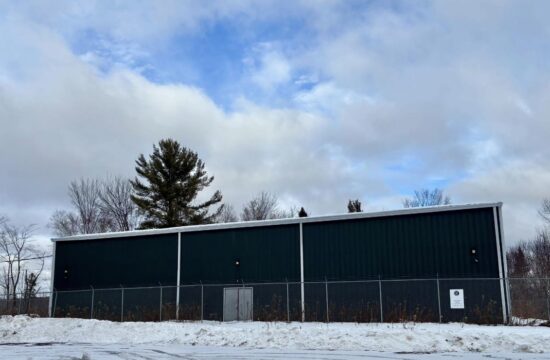By Emily Stonehouse
We watched the smoke float through our neighbourhood without batting an eye. Some just called it “haze” or “fog”, like it wasn’t toxic air floating from neighbouring provinces.
Adam Frisk wrote about how smoky season is the new summer season. It’s just normal now.
The same way that blistering hot days are here alongside numbingly cold days.
To a certain extent, we have normalized climate change.
But what we haven’t normalized is the way we talk about it. Anyone who brings up the taboo term is quickly accused of fear mongering. Of dramatizing. Of attention seeking.
“It’s always been this cold,” some say.
“Weather has fluctuated for years,” say others.
But not like this.
And I’m not writing this in an effort to add fear or guilt or pressure or anger to our pages.
I am just considering ways that we bring up climate change in a more normalized sense.
We should add it to the regular repertoire.
The same way that when new ideas are presented, it’s second nature to ask about the budget. The price points. Talk around costs when it comes to projects that have an impact on the masses is highly normalized. In fact, it’s expected. If certain costs are kept under wraps, governmental agencies are accused of gatekeeping, of using taxpayers dollars to line their own pockets in some way, shape, or form.
We should have that same level of transparency when it comes to environmental impacts. Doug Ford has happily added the stamp of prosperity onto his Bill 5 movement; showcasing apparent provincial economic gain, but he hasn’t been required to outline the risks and rewards his actions will have on the natural world.
Recently, our own municipalities navigated this slippery slope. A group of concerned citizens requested an environmental impact study when a property looked to change their zoning to accommodate a hobby farm.
Beyond the politics of that situation, I found it admirable that a group of people chose to add the topic of the environment to the table.
Because so often, it’s overlooked. It’s not seen as a critical factor in day to day decisions.
And why is that? This is something that keeps me up at night. Why aren’t more people concerned? How are we turning our heads away from these layers of natural disasters that continue to pile up on one another, impacting our everyday lives whether we like it or not?
By stamping on accusations of fear mongering, the relevance of the topic becomes diluted. But when we speak of climate change, it’s not a cry for attention, it’s a reality.
And while name-calling and hurled hatred is perhaps a defence mechanism kept in the back-pockets of those in doubt, it doesn’t change the reality of the situation.
We don’t need to live in fear, but we do need to talk about it. We do need to consider how our actions have a direct impact on the generations that will follow us. We do need to address the elephant in the room that our politicians are shying away from important conversations that could put us on a more holistic path forward.
Because this is our new normal.
And we should be normalizing talking about it, instead of waiting for things to get worse.












